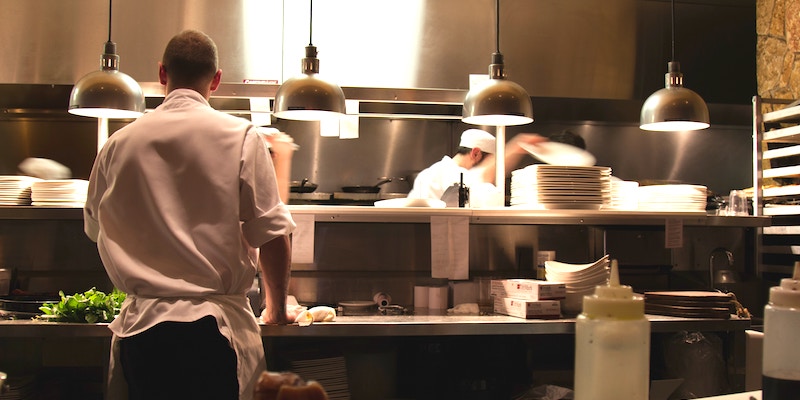Use Safe Food Handling Processes to Improve Kitchen Teamwork and Productivity

A safe food handling culture in your professional kitchen can improve business outcomes, engage staff, enhance your business’s reputation, enrich your patrons’ experience and boost profits. So let’s explore a few ways to develop your business’s interests by initiating a gold standard in safe food handling procedures.
- A strong food safety culture will ensure hygiene and sanitation are priorities in your kitchen. Build this culture by consistently emphasising food safety, the potential hazards of poor food safety and holding team meetings to troubleshoot known risk areas in your kitchen. Then watch as staff begin to educate each other and discuss ways to improve systems in your kitchen. By taking this approach to a common area of interest to all involved in your facility, you will notice changes in your staff in a variety of ways.
- Ensure your
waiting staff are cleanly attired and conduct themselves professionally whenever
they are visible to the public. Members of the public will make snap
assessments about an establishment based on the cleanliness and appearance of
the staff they see. Professional front of house staff will give patrons
confidence that kitchen staff are similarly proficient.
- Train new
staff quickly so they feel part of a team, understand the acceptable standard
and adopt best practice. New members to any professional team are more likely
than established members to make inadvertent mistakes simply because they are
unfamiliar with the new processes. Spend time with your new staff and train
them in the jobs they are expected to perform. As chef or restaurant/kitchen
manager, you need to be satisfied the new team members can perform their duties
to the required level. As a consequence, the new team member will begin to feel
part of the bigger whole.
- Fully
function, high performing kitchen teams have lower staff turnover. This saves
enormous amounts of time, money and heartache in relation to consistently training
and dealing with new staff. Such teams also have high-quality output produced
efficiently in a harmonious atmosphere.
- The above
teams also have lower absenteeism coupled with a can-do attitude. Absenteeism
can be crippling to staff morale and adds to costs. People arrive at work not
knowing if other staff will be present and this puts them in a negative frame
of mind from the outset. Conversely, members of highly productive teams don’t
want to let the side down so bring a positive energy, professional efficiency
and can-do attitude to every shift.
Achieving
this level of teamwork takes time yet is a must for all professional kitchens.
Fortunately, there is a direct route to achieving this. The requirement for
safe food handling procedures is a concept everyone understands once the
dangers are spelt out. Consequently, it represents an indisputable unifying
ideal all staff members willingly buy into. As chefs and restaurant/kitchen
managers, your role is to lead from the front by beginning the discussion so
the culture of excellence grows in this area. Then watch as it permeates every
aspect of the business and improves your productivity and profitability.





















































































